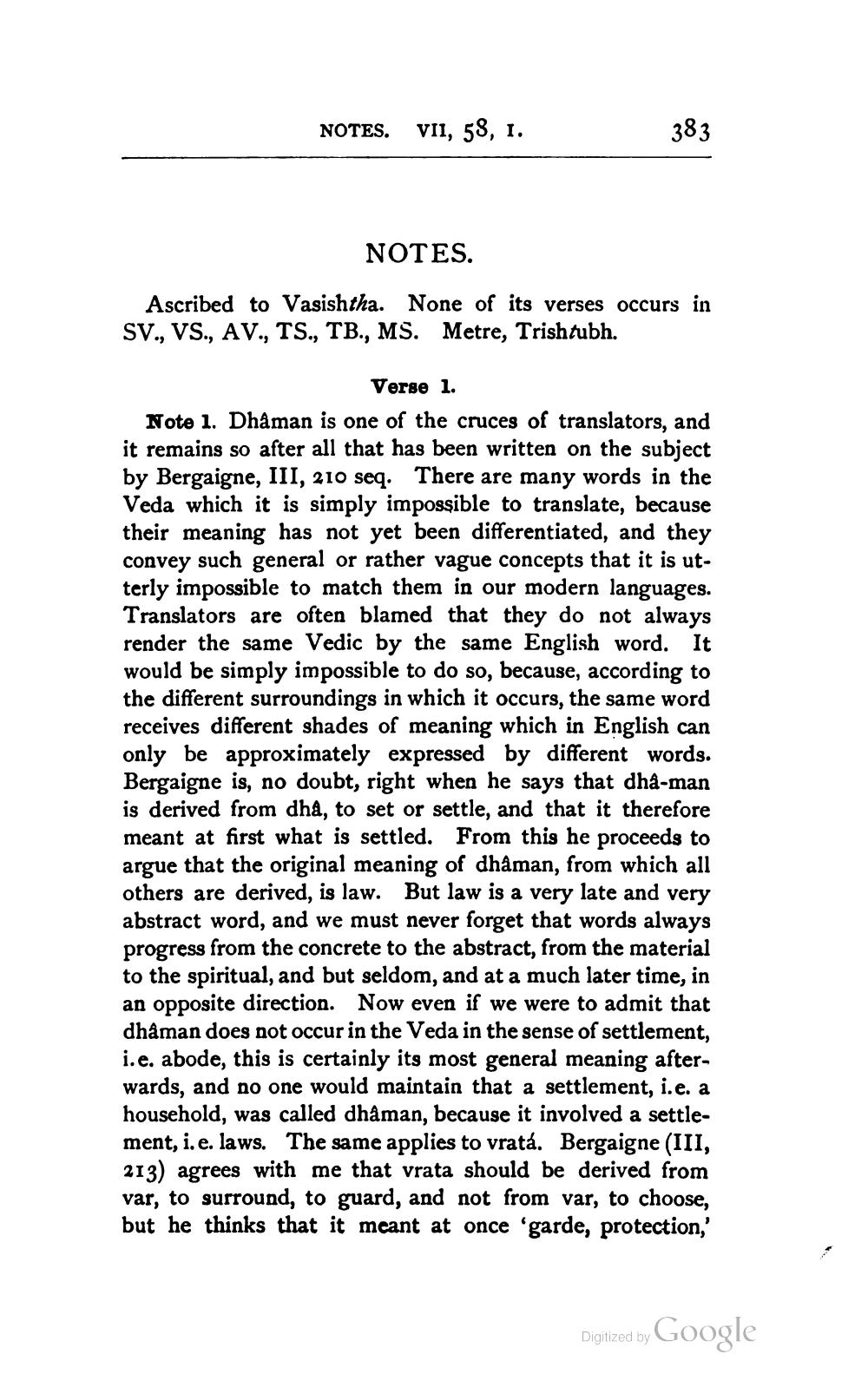________________
NOTES. VII, 58, 1.
383
NOTES.
Ascribed to Vasishtha. None of its verses occurs in SV., VS., AV., TS., TB., MS. Metre, Trishtubh.
Verse 1. Note 1. Dhaman is one of the cruces of translators, and it remains so after all that has been written on the subject by Bergaigne, III, 210 seq. There are many words in the Veda which it is simply impossible to translate, because their meaning has not yet been differentiated, and they convey such general or rather vague concepts that it is ut. terly impossible to match them in our modern languages. Translators are often blamed that they do not always render the same Vedic by the same English word. It would be simply impossible to do so, because, according to the different surroundings in which it occurs, the same word receives different shades of meaning which in English can only be approximately expressed by different words. Bergaigne is, no doubt, right when he says that dhà-man is derived from dha, to set or settle, and that it therefore meant at first what is settled. From this he proceeds to argue that the original meaning of dhaman, from which all others are derived, is law. But law is a very late and very abstract word, and we must never forget that words always progress from the concrete to the abstract, from the material to the spiritual, and but seldom, and at a much later time, in an opposite direction. Now even if we were to admit that dhâman does not occur in the Veda in the sense of settlement, i.e. abode, this is certainly its most general meaning afterwards, and no one would maintain that a settlement, i.e. a household, was called dhaman, because it involved a settlement, i.e. laws. The same applies to vratá. Bergaigne (III, 213) agrees with me that vrata should be derived from var, to surround, to guard, and not from var, to choose, but he thinks that it meant at once 'garde, protection,'
Digitized by
Digized by Google




